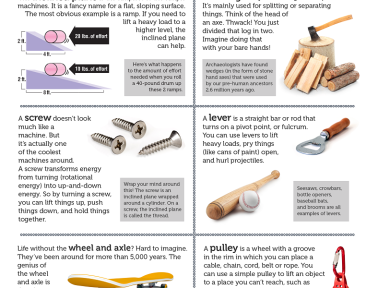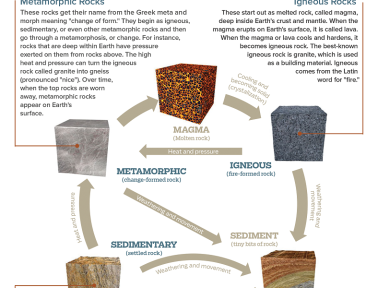This past week a friend of mine sent me a disturbing thought-provoking article from the Wall Street Journal. The piece, entitled “Why Chinese Mothers Are Superior“ is an excerpt from Amy Chua’s new book, Battle Hymn of the Tiger Mother. My friend and I have had several discussions on parenting, and she served as one of my editors as I wrote my ebook, Parenting with Positive Guidance. So naturally, she wondered what I thought about this mother’s take on superior parenting and ultimately superior kids.
I have to think that some of what Amy Chua wrote was written in hyperbole and intentionally inflammatory for the sake of generating a passionate audience (writing tame, middle-of-the-road stuff doesn’t get many people buzzing about a book). But still, I feel I have weigh in here and make just a few points.
More Than Two Styles
In the article, Amy Chua points out the superiority of the authoritarian parenting style she typifies as the “Chinese mother”. No playdates, no sleepovers, all extra-curricular activities chosen by parents, and a firm expectation that their children be not just among the top of their class, but the top student in their class. (Which makes me wonder, what happens when you have twins in the same class?) For this Chinese mother, anything short of perfection is a disappointment.
And when children need parental guidance to help them memorize that next piano piece, correct their misbehavior, or reprimand them for being less than the top student in their class, Chua’s Chinese mother advocates belittling, shouting, and shaming them into conformity. She insists that strictness, harshness, and threats drive them to be their best and make them stronger.
At the other end, Chua points out the flaws of what she calls the “Western father”, which she characterizes as lax and indulgent. She decries the tendency to be overly protective of the child’s self-esteem and to expect less than a child is capable of. It is this Western parenting that leads to weak, lazy, and apathetic children.
Of course I had a gut reaction to the parenting tactics that Chua proclaimed as preeminent, but beyond that, I take issue with the fact that she presents these two extremes as the only choices we have as parents.
In the literature on parenting styles there are actually at least three styles as defined by the foremost academic author on the topic, Diana Baumrind. (A fourth, neglectful, could also be considered, but we’ll leave it out of this discussion for obvious reasons.) Buamrind labels the first parenting style as authoritarian. Similar to Chua’s examples, the authoritarian parent exerts total control over the child, does not invite the child’s opinion, and exerts parental authority through punitive means.
What Chua describes as the “Western father”, the “whatever makes you happy”, “rules are relative”, and “as long as you’re OK with it I’m OK with it” kind of parent would be labeled by Baumrind as a permissive parent. This parent is warm, fun, and friendly, but doesn’t exert much power or control. This parent is thought of more as a buddy.
Confined to these two choices, things look pretty bleak for our kids. Luckily, there’s a third style.
The third parenting style presented by Baumrind is actually the most beneficial for children, generally producing better outcomes in social-emotional, behavioral, and even school performance. That parenting style is labeled authoritative and is, of course, the middle of the road. The authoritative parent has high expectations and firm and consistent authority, but the authoritarian also invites open communication with her children, explaining her expectations and asking for her child’s perspective. The authoritarian encourages child choice and independence within the boundaries established. It’s the ideal blend of warmth and love with appropriate amounts of parental control and guidance.
So to take an example of authoritarian parenting from Chua’s essay, she responds to her daughter’s disrespect toward her by calling her “garbage”, claiming that when her father did the same to her as a child it didn’t do any damage.
On the other end, the permissive parent might respond to a child’s disrespect by rationalizing that the child is entitled to express her opinions and simply let the child carry on as she sees fit, without reprimand or consequence.
Thankfully, there is the middle ground of the authoritative parent. This parent validates the child’s emotions (“I know you’re disappointed…”), but sets limits and holds them firmly (“…but I will not allow you talk to me that way.”).
I find that in many minds, positive parenting or positive guidance is associated with permissive parenting. And certainly, there are some who become too permissive in their attempts at positive guidance. But in truth, positive guidance works best in an authoritative parenting style. The term “guidance” alone indicates that there are standards and expectations to be guided toward.
Chua makes great points about the need for high standards, hard work, and parents who are bold enough to do the sometimes messy job of parenting. And to be fair, I have to note that studies show that the efficacy of Baumrind’s parenting styles are sometimes mitigated by the intricacies of specific cultures. But the extreme examples outlined in the essay in the Wall Street Journal are certainly not the only ways to go about it. And in my opinion, calling your child “garbage” isn’t even close to the best way to go about it.
So while The Battle Hymn of the Tiger Mother may be a fascinating memoir, I cringe to think of anyone reading it as a how-to book on “superior motherhood”. First of all, motherhood isn’t a competition. We all just try to give the kids we have the best we can with what we know. But one thing is for sure. It won’t matter how many extra letters your child earns at the end of her name, how young she was when she learned to read, or how many hours of piano practice she clocks, none of those accomplishments can make up for a childhood marked by threats, fear, beratings, and insults.
Top photo by Vanessa Fitzgerald.
<!–
–>










